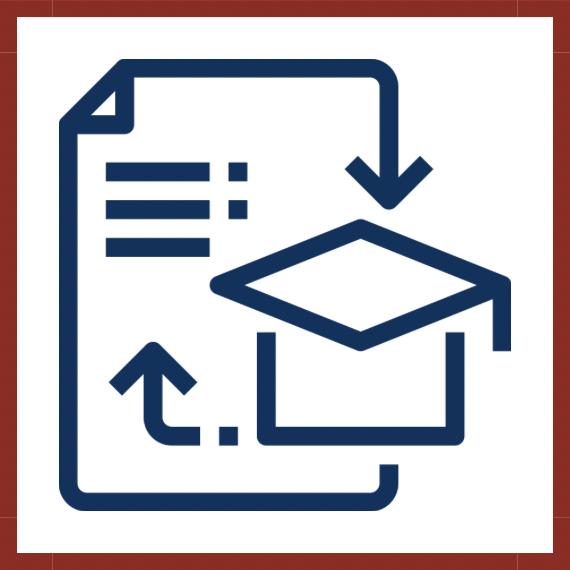Level and Duration of the Program: Undergraduate, 8 Semesters.
Industrial Engineering Department Mission
The objective of the Department of Industrial Engineering is to equip students with comprehensive knowledge and proficiency in the planning, construction, and management of industrial systems while simultaneously fostering the adoption of sustainable production and operational strategies.This includes instilling a sense of social and environmental responsibility, enhancing business efficiency, and conferring competitive advantage.
Industrial Engineering Department Vision
The objective of the Department of Industrial Engineering is to attain international renown as a center of excellence for education and to conduct groundbreaking research that contributes to the development of innovative and sustainable industrial systems, as well as the betterment of society.The department aims to equip its students with the necessary creative thinking, leadership, and problem-solving abilities to become leaders and agents of innovation in industrial engineering.
Program Purpose: The objective of the Industrial Engineering Program is to provide students with comprehensive knowledge and proficiency in the planning, optimization, and administration of industrial operations.Additionally, this program aims to accomplish the following goals:
1. Increasing Productivity: To increase the efficiency of industrial systems and improve their ability to use resources effectively.
2. Quality Control: To ensure quality control in production and service processes and focus on quality management.
3. Cost Reduction: Increasing the profitability of businesses by providing cost-effectiveness.
4. Sustainability: Developing sustainable production and business strategies and emphasizing environmental and social responsibility.
5. Leadership and Management Skills: To Provide students with leadership and management skills to enable them to manage industrial projects effectively.
6. Problem Solving: Develop the ability to analyze complex industrial problems and develop effective solutions.
7. Innovation and Technology: To encourage business processes and product development using technology for industrial engineering students.
Program Outcomes: After the completion of the Industrial Engineering Program, the students had various achievements.These achievements have helped them build successful careers in industrial engineering.The achievements of the students who graduated from the industrial engineering program are as follows:
1. Design of Industrial Processes: Students gain the ability to design product and service production processes effectively.
2. Efficiency and Cost Management: They knowledgeable about increasing efficiency, optimizing resources, and reducing operating costs.
3. Quality Control: Theylearn about the principles of quality management and quality control techniques.
4. Business Management: They gain skills in the strategic management of businesses, management of operational processes, and project management.
5. Sustainability and Social Responsibility: They become aware of sustainable business practices and social responsibility principles.
6. Problem-solving skills: They develop the skills to analyze complex problems and come up with creative solutions.
7. Leadership: Strengthened leadership, communication skills, and teamwork abilities.
8. Innovation and Technology: By keeping up with technological developments, they have knowledge of innovation and continuous improvement.
9. Statistics and Data Analysis: They Effective in decision-making processes using statistics and data analysis tools.
10. Ethical Values: They become aware of the ethical and professional responsibilities of industrial engineering.
Program Employment Areas: Graduates of the Industrial Engineering Program face a wide range of employment opportunities.The following are the areas in which program graduates can be employed:
1. Production and Operations Management: Planning, supervising, and optimizing production processes in factories, production facilities, and operational units.
2. Quality Management: Quality control and quality assurance positions, ensuring and improving the quality of products and services.
3. Supply Chain Management: Coordinating supply chain processes, inventory management, logistics, and supplier relationship management.
4. Business Process Management: Analyzing, developing, and redesigning business processes, increasing their efficiency of business processes.
5. Project Management: Planning, executing, and controlling large-scale projects and project manager positions.
6. Business Analytics and Data Science: Data analysis and business intelligence, supporting business decisions using data and big data analysis.
7. Occupational Health and Safety: Establishing andimplementing safety protocols in workplaces and occupational health and safety management.
8. Consultancy: Industrial engineers can provide consultancy to businesses to improve their operations and processes.
9. Energy and Environmental Management: They work on energy efficiency and environmental sustainability.
10. Business Administration: Business management and leadership positions, executive or executive assistant roles.
11. Research and Development: Working in product and service development, continuous improvement projects, and R&D departments.
Course Process: The operation of courses inthe Department of Industrial Engineering consists of courses related to basic engineering principles and management of industrial processes.Courses in the program were conducted through an Internet-based Learning Management System (LMS).This allowed students to attend classes and complete the program online.
1. Basic Engineering Courses: These courses teach students the fundamentals of engineering. Courses in mathematics, physics, chemistry, and basic engineering principles are included in this category.
2. Industrial Engineering Basic Courses: These courses provide students with information about basic concepts, principles, and methods in the field of industrial engineering.The basic processes, data analysis, optimization, and problem-solving methods of industrial engineering fall into this category.
3. Business Process and Operations Management Courses: These courses cover production processes, operations management, logistics, inventory management, and quality control.
4. Mathematics and Statistics Courses: Knowledge of mathematics and statistics is very important for industrial engineers. These courses provide students with the opportunity to develop their skills in data analysis, modeling, and statistical analysis.
5. Technology and Automation Courses: Industrial engineers must keep up with technological developments. These courses teach students about industrial automation, robotics, and other high-tech topics.
6. Business and Management Courses: Courses that include topics such as business management, leadership, project management, and business ethics help students succeed in the business world.
7. Graduation Projects: At the end of the program, students usually complete their graduation projects. These projects allow students to apply their knowledge to real-world problems.

Bölüm Müfredati / Department Curriculum

Bölüm Müfredati / Department Curriculum
